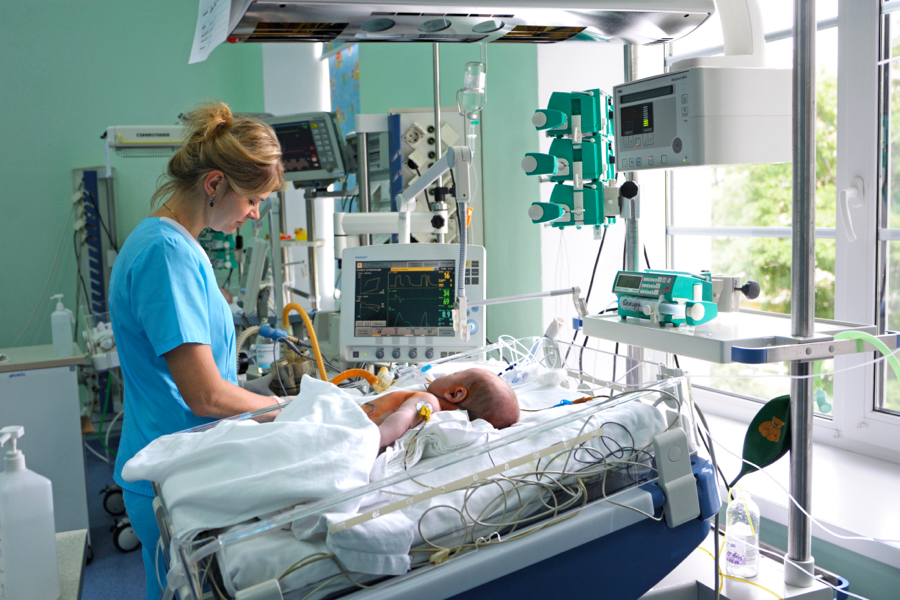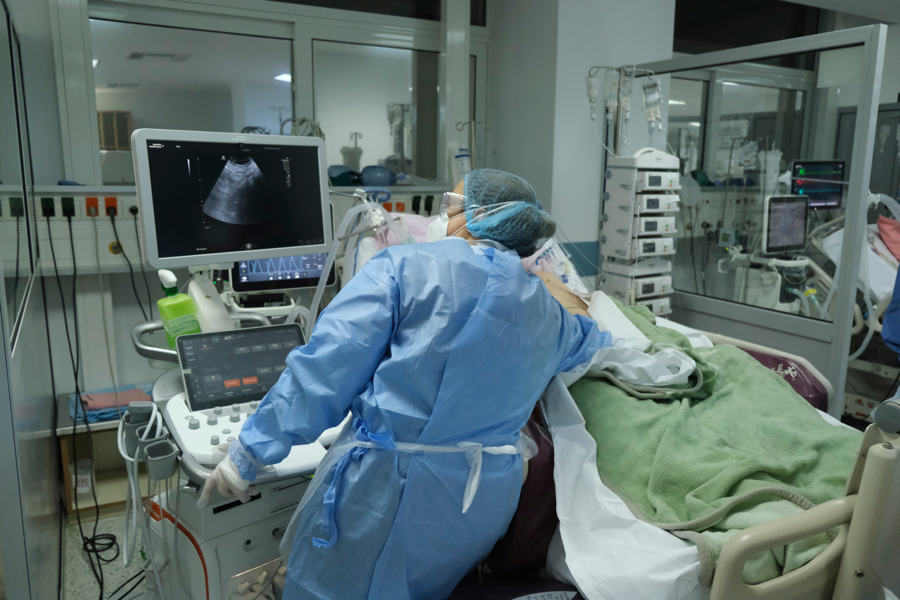
PROFESSIONAL DEVELOPMENT
Take Charge of Your Nursing Career: The Benefits of CCRN Certification
-
 EveryNurse Staff
EveryNurse Staff
- Last Updated: 08/17/2021

Are you a critical care nurse who is ready to push your career to the next level? If so, becoming CCRN certified is the right choice for you. Earning your CCRN certification gives you a competitive edge, validates your expertise in critical care nursing, and increases intra-disciplinary recognition of your accomplishments.
What Is CCRN Certification?
CCRN certification is a trademarked credential granted by the certifying arm of the American Association of Critical-Care Nurses or AACN. Worldwide, there are more than 99,000 registered nurses who are CCRN certified in adult, neonatal or pediatric nursing. CCRN certification validates nurses expertise in caring for critically ill patients and promotes continuing excellence in the profession of critical care nursing.
Benefits of CCRN Certification
Many nurses question whether or not they should sit for the CCRN certification exam. Although answering that question requires careful introspection and should not be taken lightly, it is important to note that being certified validates nursing knowledge and demonstrates to the world that nurses are clinical experts. The exam is extremely difficult, but many CCRN certified nurses report that earning the credentials is their single greatest career accomplishment.
Hospitals and physicians have made it clear that the medical profession values the CCRN certification. Many hospitals offer an hourly pay differential for nurses who are certified and the average annual salary of a CCRN is approximately $10,000 more per year than critical care nurses who are not certified. Furthermore, many physicians report increased respect for nurses if they have completed a specialty certification, like the CCRN, that mirrors the certification required by physicians.
In addition to self-validation of your knowledge and increased intra-disciplinary recognition of your accomplishments, obtaining the CCRN certification has direct and tangible benefits. According to a 2019 article by Denise Dayton, CCRN certified nurses are more likely to accomplish the following:
- Be promoted by their employer
- Get selected to serve on policy-making committees
- Actively participate in clinical research
Become Board Certified in Your Specialty or Subspecialty
Critical care nurses have one of the most challenging yet rewarding careers. The intelligence, grit, and compassion it takes to succeed in critical care make it a desirable profession for those who seek challenges. Nurses in critical care are problem solvers and natural born leaders. However, many critical care nurses struggle with feeling under-valued and are looking for ways to increase intra-disciplinary recognition of their knowledge and advance their career.
Regardless of what area of critical/acute care nursing is your specialty, there is an AACN certification for you. The AACN offers 15 different certification exams that validate nursing expertise in every area of critical/acute care nursing.
Available Certifications
1. CCRN (Adult)
The CCRN (Adult) certification is ideal for nurses who provide direct patient care to critically ill adult patients. This certification is not limited to a specific physical location. Nurses interested in this certification may work in a variety of clinical practice areas, including intensive care units, trauma units, cardiac care units, or critical care transport/flight.
2. CCRN (Pediatric)
The CCRN (Pediatric) certification is targeted towards nurses who provide direct patient care to critically ill pediatric patients. The certification is not limited to nurses who work in the pediatric intensive care unit. Nurses who work in cardiac care units, trauma units, or critical care transport/flight may also be interested in this certification.
3. CCRN (Neonatal)
4. CCRN-K (Adult)
The CCRN-K (Adult) certification is geared towards nurses who no longer exclusively work at the bedside, but still influence the nursing care provided to critically ill adult patients. Nurses in leadership roles, such as clinical educators, supervisors, directors, academic faculty, or nursing administrators frequently seek this certification.
5. CCRN-K (Pediatric)
6. CCRN-K (Neonatal)
7. CCRN-E (Adult)
8. PCCN (Adult)
The PCCN (Adult) certification is designed for nurses caring for acutely ill adult patients in a variety of settings. Nurses who work in intermediate care, direct observation, step-down, telemetry, transitional care, or the emergency department may be interested in pursuing this certification.
9. PCCN-K (Adult)
10. CMC (Adult)
11. CSC (Adult)
12. ACNPC-AG (Adult-Gero)
13. ACCNS-AG (Adult-Gero)
14. ACCNS-P (Pediatric)
15. ACCNS-N (Neonatal)
CCRN Certification FAQ
Who Is Eligible to Sit for the CCRN Certification Exam?
The exam is open to both registered nurses (RNs) and advanced practice registered nurses (APRNs). There are 2 eligibility tracts:
1. Employed as an RN or an APRN with 1,750 hours of direct patient care to acutely/critically ill patients within the past 2 years, with 875 of those hours accrued in the most recent year preceding the application.*
2. History of practicing as an RN or an APRN for at least 5 years with a minimum of 2,000 hours in direct patient care of acutely/critically ill patients, with 144 of those hours accrued in the most recent year preceding the application.*
*The majority of the hours for exam eligibility must focus on critically ill patients.
When Is the CCRN Exam Offered?
The CCRN exam may be taken year-round, Monday through Saturday, at more than 300 computer-based testing centers around the United States. The exam is also offered via a remote proctored option from your own computer/desk in a private, quiet location.
How Do I Apply for the CCRN Exam?
You may apply for the exam using a paper application or online using the AACN website. The paper application is available in the CCRN Exam Handbook.
What Does it Mean to be Board Certified?
Board certified is a term that has traditionally been used by physician organizations. In the nursing profession, board certified refers to certification from a nationally accredited nursing organization that is governed by a board of directors.
Are AACN Certification Programs Considered Board Certified?
Yes! The AACN is a nationally accredited nursing organization that is governed by a board of directors, therefore, the AACN certification programs are board certified.

















